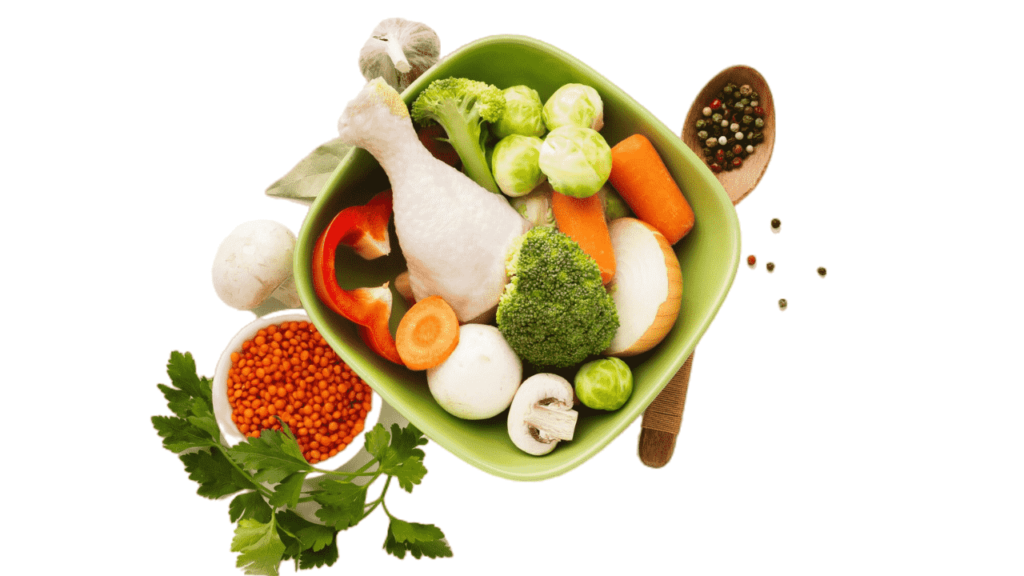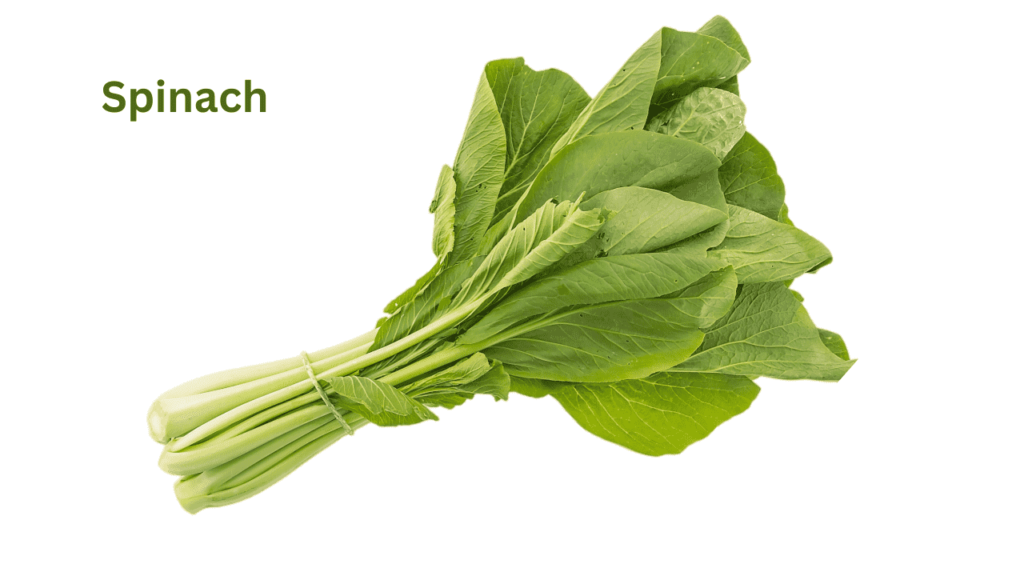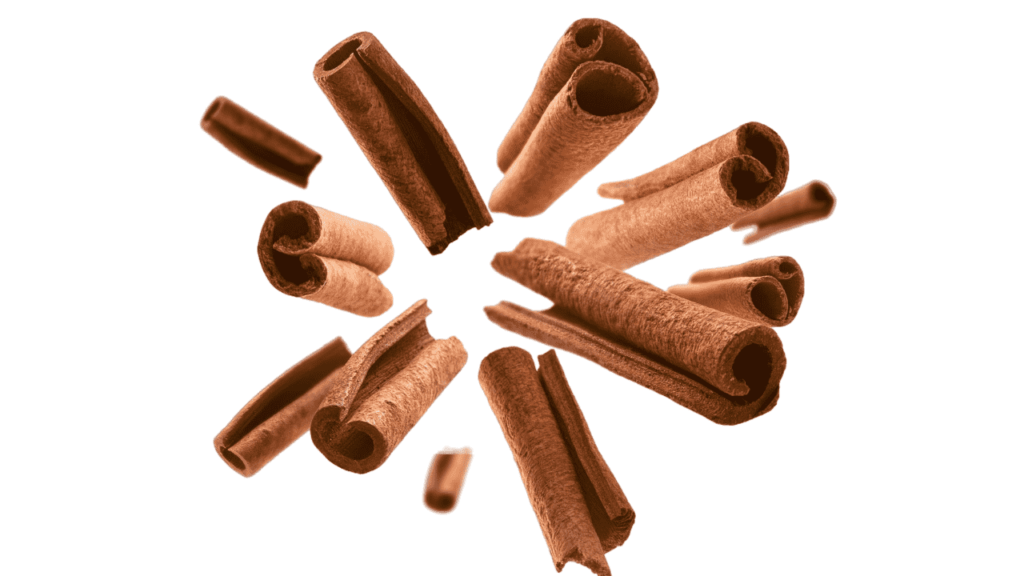Hair fall is a common problem among women. It’s a natural process that happens every day due to the cycles of growth, transition, and shedding. When the number of hairs lost exceeds 100, it becomes a serious concern. Understanding the causes is key to preventing this issue.
How Foods Can Help

Hair fall can be caused by lifestyle factors such as stress, diet, hormonal changes, and medical conditions like diabetes and autoimmune disorders. Vitamin deficiencies are also a common factor. A balanced diet and nutritional fortification can help in treating and preventing hair loss. Adding the right foods to your daily diet is a strong approach to keep your hair healthy and strong from its roots.
What is the effect of nutritional deficiency on hair?
Hair health depends on many factors, including:
- Age
- Overall well-being
- Genetics
However, your diet plays a crucial role too. When your diet is lacking in essential nutrients, it can lead to hair loss. Important vitamins and minerals like B12, D, biotin, riboflavin, and iron are necessary for hair follicle growth and cycle turnover. Environmental exposure and certain medications also affect hair health.
- To promote strong hair growth, ensure your diet is rich in these nutrients.
- Research shows a balanced diet supports healthy hair, especially when deficiencies are addressed.
- Eating fast food with poor nutrition can disrupt the cellular processes and micronutrients needed for hair health.
Understanding the connection between diet and hair health is crucial for ensuring you get enough nutrients to support healthy hair and keep it under control.
Eggs for protein and biotin
Eggs are a fantastic source of protein and biotin, which are essential nutrients for hair growth. Eating enough of these nutrients supports hair follicles, mostly made of protein. A lack of protein can cause hair loss, and biotin is crucial for the production of keratin, a protein that improves hair health. Biotin supplements are often marketed for people with a deficiency, but it’s uncommon if you have a balanced diet. Some evidence suggests that consuming more biotin may benefit hair, but high amounts can interfere with laboratory results. Eggs also contain zinc and selenium, which are hair-healthy nutrients. Supplements and foods rich in these can benefit your hair, skin, and nails. Managing conditions with a balanced diet is better than consuming excess supplements. It’s unlikely that eating more than the recommended amount will help, and it can cause other health issues.
Berries for antioxidants and collagen production
Berries are loaded with beneficial compounds and vitamins that support hair growth. They are rich in vitamin C, which has strong antioxidant properties. Antioxidants help protect hair follicles from damage caused by harmful molecules called free radicals that exist naturally in the body and environment. For example, a cup of strawberries provides your daily needs of vitamin C. This vitamin helps the body produce collagen, a protein that can strengthen hair and prevent it from becoming brittle and breaking. It also helps absorb iron from the diet, which is crucial to avoid iron deficiency anemia that is linked to hair loss. Additionally, some people wonder, does hair itch when it grows? Berries might help with this by keeping the scalp healthy and less prone to irritation.
Spinach for vitamin A, vitamin C, iron, and folate

Spinach is a healthy green vegetable that is loaded with beneficial nutrients like folate, iron, and vitamins A and C, which are important for hair growth. Studies suggest that while vitamin A is crucial for hair growth, supplementing with too much can lead to hair loss. Eating foods that are rich in this nutrient, like spinach, can help. A cup of spinach provides up to 20% of your daily needs for vitamin A. Spinach is also a great plant-based source of iron, which helps red blood cells carry oxygen throughout the body to fuel your metabolism and aid in repair. An iron deficiency can cause hair loss, so including spinach in your diet is a good way to support your hair health.
Fatty fish for omega-3 fatty acids and protein
Fatty fish like salmon, herring, and mackerel are excellent sources of omega-3 fatty acids and protein, which are crucial for hair growth. These nutrients help promote strong and healthy hair. An older study involving females found that a supplement containing omega-3 and omega-6 fatty acids and antioxidants reduced hair loss and increased density. Experts suggest including sources of vitamin D3, selenium, and B vitamins in your diet for overall health. Though more studies are needed, it’s a good idea to add fatty fish to your meals. If you have low vitamin levels or a deficiency, this could be linked to hair loss. For proper hair care, consider if you should shampoo twice to keep your scalp clean and support hair health.
Sweet potatoes for beta-carotene
Sweet potatoes are a good source of beta-carotene, which the body converts into vitamin A. This compound is linked to hair health. A medium sweet potato contains enough beta-carotene to provide up to 160% of your daily needs for vitamin A. Research has shown that vitamin A can affect the production of sebum, which helps keep hair healthy. Deficiency in vitamin A can lead to hair loss, but too much can also cause loss. Aim to meet your needs by eating vitamin-A-rich foods like sweet potatoes and avoiding supplementation.
Avocados for healthy fats and vitamin E
Avocados are not only delicious and nutritious, but they are also a great source of healthy fats and vitamin E, which can support hair growth. A medium avocado provides a significant amount of your daily needs for vitamin E. This antioxidant helps prevent oxidative stress by neutralizing free radicals. Studies have found that people with lower levels of vitamin E may experience hair loss. Some evidence is conflicting, but an older study showed that taking a supplement for several months led to more hair growth. Vitamin E also protects areas of the skin and scalp from damage, which can result in poor hair quality and fewer follicles.
Nuts for vitamin E, vitamin B, zinc, and healthy fats
Nuts are not only tasty and convenient but also packed with vital nutrients that aid in hair growth. A small ounce of almonds provides a significant portion of your daily needs for vitamin E. These nutrients are crucial for maintaining healthy hair. B vitamins, zinc, and essential fatty acids are also found in nuts and can prevent deficiency that may lead to hair loss. Regular consumption of nuts contributes to various health benefits, including reduced inflammation and a lower risk of heart disease.
Seeds for vitamin E, zinc, and selenium
Seeds are rich in nutrients with few calories and support hair growth. An ounce of sunflower seeds provides nearly 50% of your daily vitamin E needs, along with zinc and selenium. Certain seeds, like flaxseeds and chia seeds, offer omega-3 fatty acids. Two tablespoons of ground flaxseed give 4.7 grams of omega-3, though not as efficiently as fatty fish. Beetroot benefits hair by promoting a healthy scalp. Including various types in your diet is best for the widest variety of benefits.
Sweet peppers for vitamins C and A
Sweet peppers are antioxidant-rich and high in vitamin C, which can support hair growth. A yellow pepper offers 456% of daily vitamin C for females and 380% for males. Vitamin C helps promote collagen production to strengthen hair strands. This powerful antioxidant also protects against oxidative stress and free radicals, which can overwhelm the body’s defense system and are linked to hair loss and graying hair. They are an excellent source of vitamin A, which is important for sebum production to keep hair healthy.
Oysters for zinc
Oysters are among the best food sources of zinc. A medium oyster provides 96% of daily zinc for females and 75% for males. Zinc, a key mineral, helps support hair growth and the repair cycle. A lack of zinc in your diet can promote telogen effluvium, a common but reversible form of hair loss. Adding nutrient-rich foods like oysters or small, healthy doses of zinc supplements can reverse the effects of zinc deficiency and avoid toxicity from excessive supplements.
Beans for protein, zinc, and more
Beans are a great plant-based source of protein, which is essential for hair growth. They are also a good source of zinc, similar to oysters. A 3.5-ounce or 100-gram serving of black beans provides 14% of a female’s daily zinc needs and 10% for males. Beans offer hair-healthy nutrients like iron, biotin, and folate, and are versatile, inexpensive, and an easy addition to your diet.
Soybeans for spermidine
Soybeans contain spermidine, which may promote hair growth. Studies have shown that this compound is abundant in soybeans. A study of 100 people found that a spermidine-based nutritional supplement can prolong the anagen phase, a stage of active hair growth. The research is still fairly new, and more studies are needed for health experts to make recommendations on spermidine intake.
Meat for protein and iron
Meat provides essential nutrients that aid in hair growth, such as protein and iron. Eating cooked sirloin steak gives you 29 grams of protein to help repair and strengthen follicles. Red meat is rich in iron, which red blood cells need to deliver oxygen throughout your body. However, overconsumption of processed red meat may lead to cardiovascular disease, colorectal cancer, and type 2 diabetes. Deficiencies in protein and iron can contribute to hair loss.
Beta carotene
Beta carotene protects hair from becoming dull and dry. It stimulates the glands in your scalp to produce sebum, an oily fluid essential for healthy hair. Find it in orange-colored vegetables like pumpkin, carrots, and sweet potatoes, and fruits like mangoes and melons.
Honey
Honey can prevent thinning hair when used topically. Studies on patients suffering from itching, scaling, and hair loss showed that applying a mixture of 90% honey and 10% water to the scalp every second day for one month led to a significant reduction in hair loss.
Cinnamon

Cinnamon not only has a pleasant smell that brings back memories of the festive season, but it also helps improve circulation. This boosts nutrients and oxygen delivery to hair follicles, leading to reduced hair loss. Dust this spice on coffee, toast, pancakes, and meals throughout the day to help prevent hair loss.
Carrots
Carrots are a great source of vitamin A, which keeps your hair nutritious and moisturized from roots to tips. They are perfect for your summer diet to prevent hair fall. Snack on carrots with a dip, or add them to dishes like fried rice or vegetable chaat.
Prunes
If your hair is thinning, dry, or discolored, it might be an iron deficiency. Consume prunes as a source of iron to improve hair thickness and strength. Have them as a mid-day snack or with breakfast.
Dairy products (low-fat)
Calcium is an essential mineral for hair growth. Yoghurt and cottage cheese provide protein sources like whey and casein. For a healthy snack, try mixing nuts like walnut and flaxseeds for zinc and omega-3 fatty acids.
Lentils and Chickpeas
Lentils and chickpeas are rich in folic acid, helping your body produce red blood cells. This is essential for hair growth and strength. At crownhairs, we suggest using them to prepare hummus, satisfying both your tummy and tresses.
Kiwi
Kiwi is a great source of Vitamin C and helps your body absorb iron more efficiently, thus promoting hair growth and preventing hair fall. Blend some kiwi juice or add it to your cereal bowl with nuts and fruits for a wholesome breakfast.
Black beans or Rajma
Black beans and rajma are a great source of protein, folate, and fiber, all essential for hair growth. They are indispensable for thickening and preventing thinning hair. Add them to your meal plan, whether traditional rajma chawal or Mexican style.
Conclusion
combating hair fall requires understanding its causes and addressing them through a balanced diet rich in essential nutrients. Integrating foods like eggs, berries, spinach, and fatty fish into your diet provides critical vitamins and minerals that promote hair health. Nutritional deficiencies can lead to hair loss, but a diet filled with proteins, omega-3 fatty acids, and antioxidants supports strong, healthy hair growth. By focusing on a nutrient-rich diet, you can effectively manage and reduce hair fall, ensuring vibrant and resilient hair.
FAQ’s
What foods stop hair fall?
Green leafy vegetables, carrots, eggs, chicken, and dry fruits like almonds, walnuts, and pistachios help prevent hair loss. Include lentils, yoghurt, and fruits rich in Vitamin C like:
- Oranges
- Grapes
- Berries
- Cherries
What are the big 3 to prevent hair loss?
People often mention the big 3 for hair loss: Minoxidil, Finasteride, and Ketoconazole (Nizoral shampoo). Some also consider microneedling as a third component in place of Ketoconazole.
What foods promote hair growth?
Hair is composed of keratin, a protein. Incorporating high-quality sources like fish, poultry, eggs, legumes, and Greek yogurt in your diet ensures an adequate supply of amino acids that promote hair growth and strength.
What can I drink to prevent hair loss?
Kiwi juice is a Vitamin C powerhouse, and onion juice offers surprising benefits for hair follicles. Leafy greens provide essential nutrients, while omega-3 rich drinks boost scalp health. Sweet potato and carrot juices are beta-carotene bombs for hair health.

